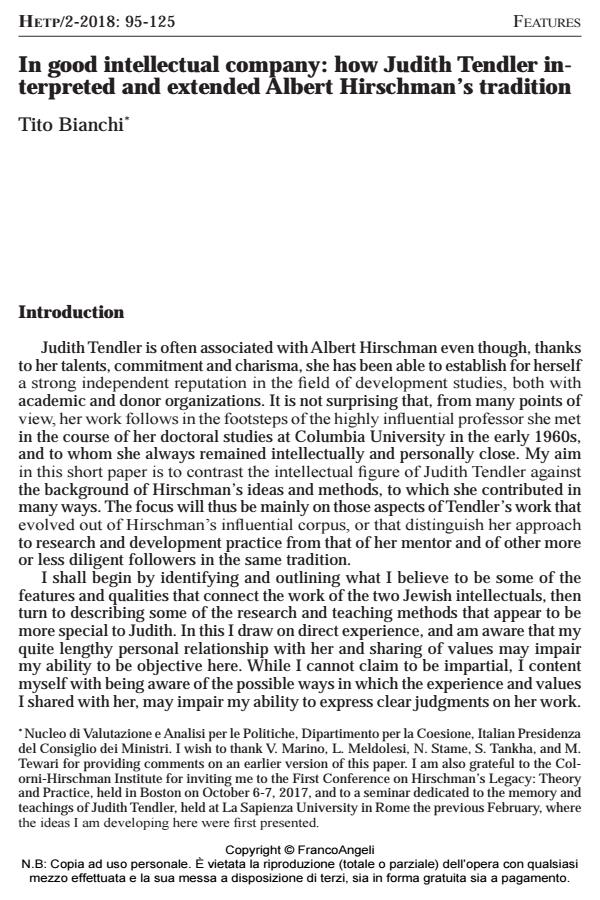In good intellectual company: how Judith Tendler interpreted and extended Albert Hirschman’s tradition
Titolo Rivista HISTORY OF ECONOMIC THOUGHT AND POLICY
Autori/Curatori Tito Bianchi
Anno di pubblicazione 2019 Fascicolo 2018/2
Lingua Inglese Numero pagine 18 P. 95-112 Dimensione file 224 KB
DOI 10.3280/SPE2018-002005
Il DOI è il codice a barre della proprietà intellettuale: per saperne di più
clicca qui
Qui sotto puoi vedere in anteprima la prima pagina di questo articolo.
Se questo articolo ti interessa, lo puoi acquistare (e scaricare in formato pdf) seguendo le facili indicazioni per acquistare il download credit. Acquista Download Credits per scaricare questo Articolo in formato PDF

FrancoAngeli è membro della Publishers International Linking Association, Inc (PILA), associazione indipendente e non profit per facilitare (attraverso i servizi tecnologici implementati da CrossRef.org) l’accesso degli studiosi ai contenuti digitali nelle pubblicazioni professionali e scientifiche.
Many associate Judith Tendler to her more famous teacher and mentor Albert Hirschman. This article contrasts her intellectual figure against the background of Hirschman’s world famous ideas and methods, describing her main contributions to this tradition. For more than 40 years Tendler has worked in development economics first as a research analyst and advisor to international development agencies; subsequently as a university professor at the MIT department of planning. Her academic and professional production prove in real world situations the usefulness of Hirschman’s main economic constructs - linkages, inducement mechanisms, and latitude in performance - as tools for policy evaluation, analysis and design. The very personal methods she employed in research and professional work testify how this approach re-interprets the figure of the policy maker, requiring from her higher competence, creativity, and sophistication.
Parole chiave:Development Economics; Albert Hirschman; Judith Tendler; Linkages.
Jel codes:B30
Tito Bianchi, In good intellectual company: how Judith Tendler interpreted and extended Albert Hirschman’s tradition in "HISTORY OF ECONOMIC THOUGHT AND POLICY" 2/2018, pp 95-112, DOI: 10.3280/SPE2018-002005